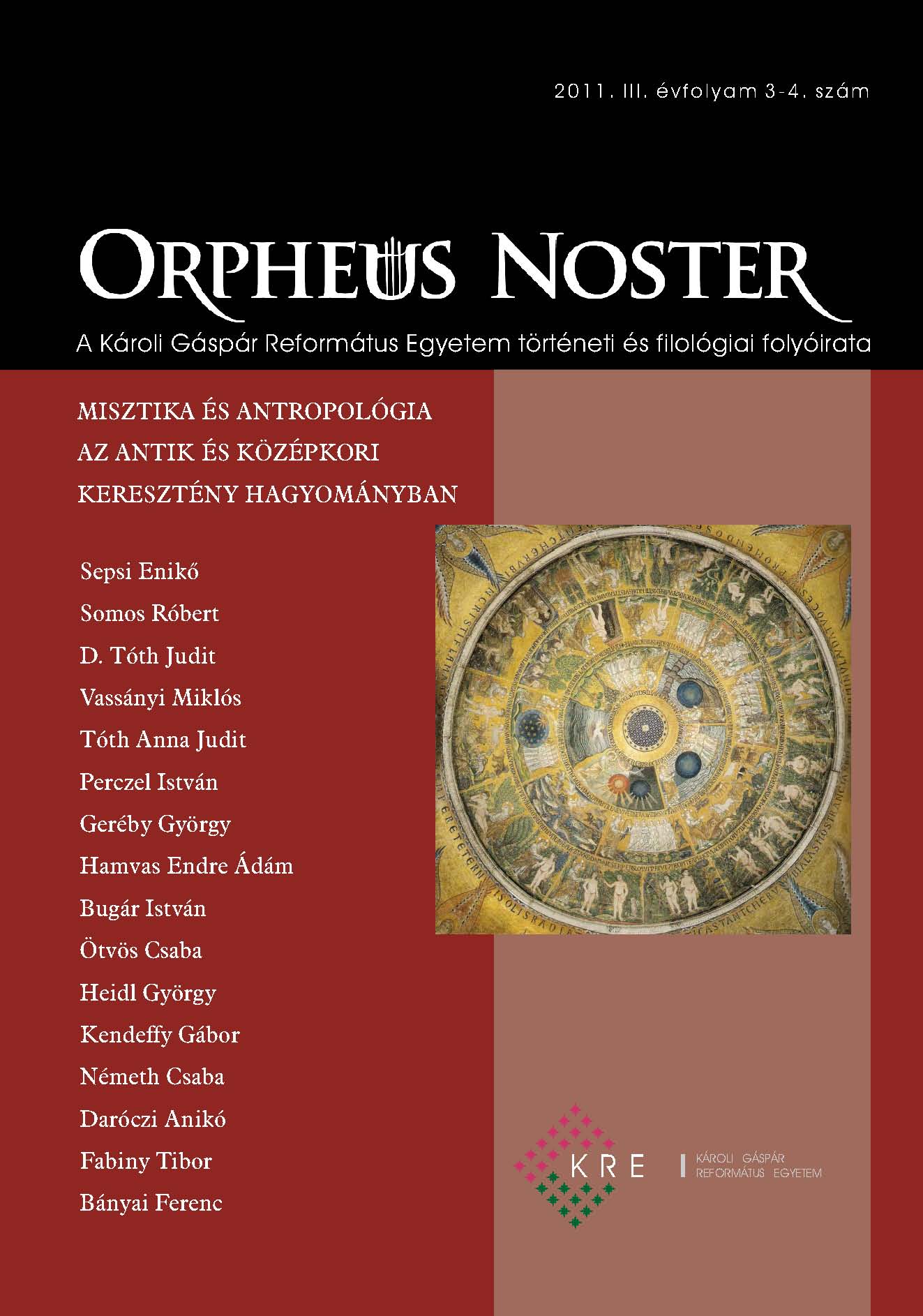A megismerés funkciója a hermetikus misztériumban
The Function of Cognition and the Concept of Mysterion in the Hermetic Literature
Author(s): Endre Ádám HamvasSubject(s): Christian Theology and Religion, Theology and Religion
Published by: Károli Gáspár Református Egyetem
Keywords: Hermetic texts; Corpus Hermeticum; the Concept of Mysterion in the Hermetic Literature
Summary/Abstract: In Hermetic texts, the process of gaining knowledge is described as a long spiritual way that has definite stations. The full gamut of knowledge about god, the universe, and about a human being’s existence in it, can be reached only with the aid of certain psychical faculties. In this paper my aim is to describe the structure of the mental dispositions and of those cognitive faculties that are essential for the process of arriving at the final stage of knowledge, gnosis. One of the main features of these mental faculties is their association with a particular disposition of the human soul. I sketch out a system of concepts that renders the nature of Hermetic gnosis more intelligible, as concerns the concept of gnosis in the Corpus Hermeticum. My main conclusion is that in anthropology, the authors of these texts apply concepts (e.g. logos, nous) which go back to Greek philosophical terminology – that is, that there is a more ancient basis of the system of Hermetic psychology which can be detected in the texts I studied.
Journal: Orpheus Noster. A KRE Eszme-, Kultúr-, és Vallástörténeti Folyóirata
- Issue Year: III/2011
- Issue No: 3-4
- Page Range: 82-89
- Page Count: 8
- Language: Hungarian

